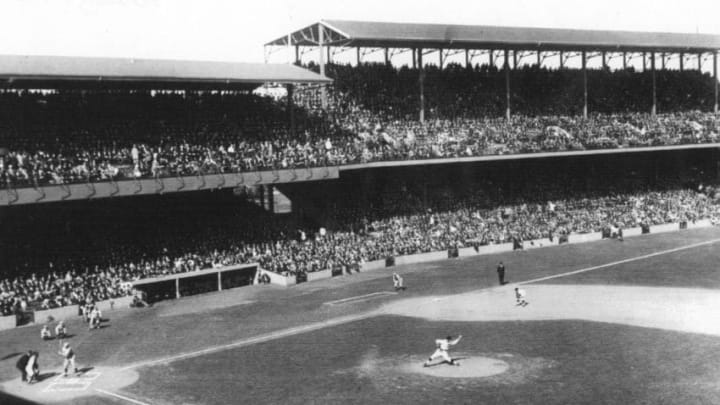
It’s commonplace today, for Atlanta Braves fans go to a ballgame and see a live concert after the game; Fuchs and Mathewson tried that and more to increase attendance.
Mathewson was the baseball brain of the group. Like Derek Jeter in Miami, his was the name people knew. His name and knowledge were all he contributed because doctors told Mathewson, who had tuberculosis after being gassed in WWI, taking the job would shorten his life.
Mathewson and Fuchs wanted the team to focus on families, which meant doing things that brought more ladies and kids to the ballpark.
More from Tomahawk Take
- Atlanta Braves 2012 Prospect Review: Joey Terdoslavich
- Braves News: Braves sign Fuentes, Andruw’s HOF candidacy, more
- The Weakest Braves Homers Since 2015
- Atlanta Braves Sign Joshua Fuentes to Minor League Deal
- Braves News: New Year’s Eve comes with several questions about the 2023 Braves
On May 1, 1923, the Braves signed a contract with movie and vaudeville magnate Marcus Loew to “stage night motion pictures, band concerts, fireworks and vaudeville at Braves Field this summer.”
They followed that in July by creating ladies’ night, allowing ladies to enter the ballpark free every Wednesday. Unfortunately, the team continued to finish seventh and the cost of putting on the shows became too much to allow it to continue.
History at Braves’ Field
Two historic events took place at Braves field in 1925; the Braves offered the first radio broadcast of a regular-season game and hosted the NL Jubilee game celebrating 50 years of the National League. The Braves won both games beating the Giants 5-4 on April 14, and beating the Cubs 2-1 on a walk-off, inside-the-park homer by Dave Harris in the 11th.
The club finished fifth in 1925 and continued to try new ideas to be better and draw fans. In 1928, the Braves acquired Rogers Hornsby from the Giants. Hornsby batted .387/.498/.632/1.130 posted a 202 OPS+, led the league with 107 walks, and finished fifth in the league with 21 homers, but the Braves finished seventh.
Following that season. Fuchs spent $200K of his own money in support of a referendum allowing Sunday sports in Boston. He was also fined $1,000 “for attempting to influence the vote.” The referendum passed but it didn’t help the team on the field.
